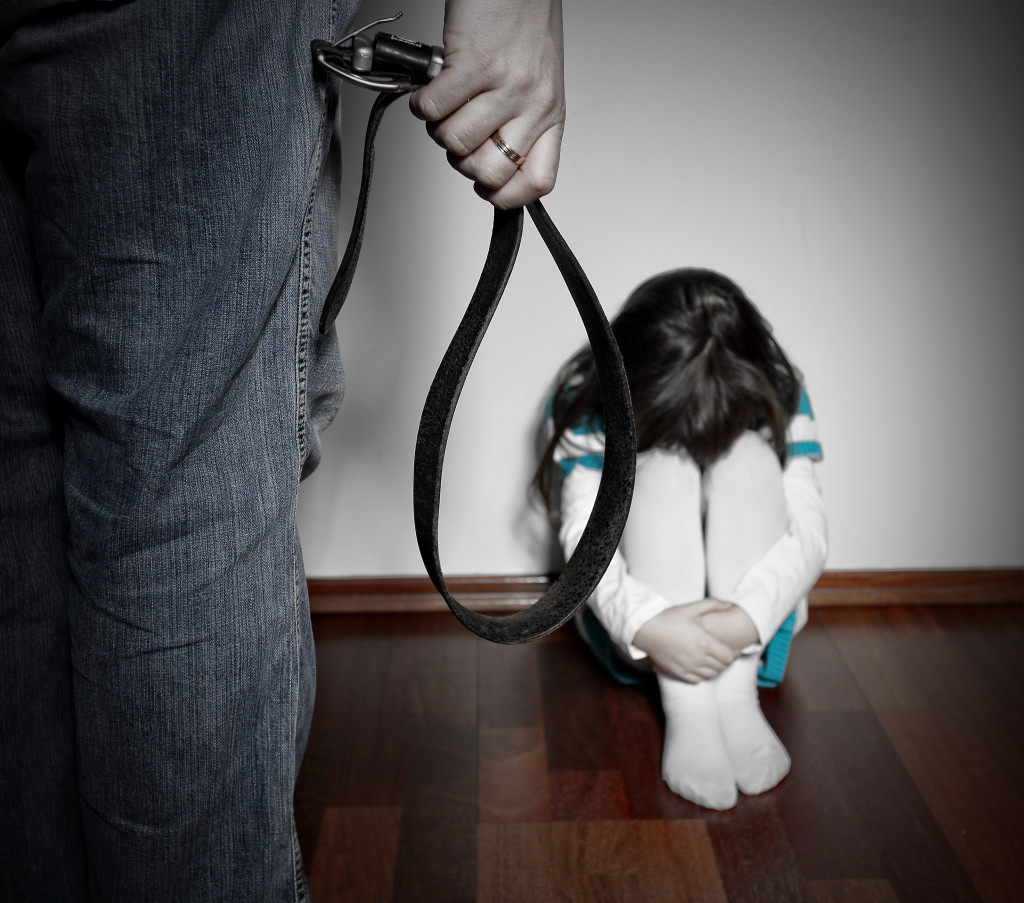Lt. Governor Will Ainsworth’s appointments: Education and Child Welfare related (January 2019 – July 2019)

We are please to present Lt. Governor Will Ainsworth’s education and child welfare related appointments from January to July. Additional appointments in judicial and criminal justice, healthcare, IT/infrastructure and agriculture and natural resources are to follow. Information on open board positions is on the appointments webpage. Prepaid Affordable College Tuition (PACT Board) (Made February 27) · Senator Donnie Chesteen · Senator Garlan Gudger Alabama Public Charter School Commission (Made March 04) · Dr. Mark W.C. Martin · Allison Haygood Children First Trust Fund Board, Join Legislative Oversight Committee (Made March 18) · Senator Donnie Chesteen · Senator Tim Melson · Senator Arthur Orr · Senator Clay Scofield · Senator Rodger Smitherman · Senator Larry Stutts Alcoholic Beverage Control Board, Advisory Board for the Restriction of Youth (Made April 03) · Senator Dan Roberts Alabama Interagency Autism Coordinating Council (Made April 03) · Senator Cam Ward Children in State Care, Joint Legislative Oversight Committee (Made April 03) · Senator Will Barefoot · Senator Linda Madison-Coleman · Senator Malika Fortier-Sanders Arts Education License Plate Advisory Committee (Made April 30) · Jane Kohl Alabama ACES Trust Fund Board (College Savings/529 Program) (Made July 19) · Susan Tully
Martha Roby: Our most precious responsibility

As a society, our children are perhaps the greatest, most precious responsibility given to us. They are vulnerable, innocent, and wholly dependent upon the adults surrounding them for protection. While horrible and unthinkable, the unfortunate reality is that not everyone takes this responsibility seriously, and there are even those who would do children harm. The National Center for Victims of Crime reports that while the prevalence of child sexual abuse is difficult to determine because it is often unreported, experts still agree that the number of incidences is vastly greater than what is reported to authorities. Children are the most vulnerable members of our society, and there is perhaps no greater responsibility before Congress than the call to protect them. I believe it is our job to provide the most effective tools available to confront, fight, punish, and ultimately prevent horrific crimes against children. Our legal protections for children and the punishments for those who harm them must be as strong as possible. That’s why I was grateful that the House of Representatives recently passed my bill, H.R. 6847, the Preventing Child Exploitation Act of 2018, in the House where it recently passed. This bill combines four pieces of legislation in an effort to fight the abuse and exploitation of children and strengthen protections for them under the law. I’d like to take a moment to share with you more specifics on what this package of bills would accomplish. First, my bill includes H.R. 1842, the Strengthening Children’s Safety Act, which makes our communities safer by enhancing penalties for sex offenders who fail to register in the national sex offender registry, and then commit a crime of violence. Second, the bill includes H.R. 1862, the Global Child Protection Act, legislation I previously introduced to combat global sex tourism by closing loopholes that allow child predators to go unpunished for their abuse of children overseas. Third, this bill includes H.R. 1761, the Protecting Against Child Exploitation Act, to add legal measures to strengthen protections for victims of child pornography. Fourth, and finally, my bill includes H.R. 1188, the Adam Walsh Reauthorization Act, to continue our support for programs that help prevent child abuse by ensuring that the public has access to information about known sex offenders in their neighborhoods. In addition to introducing the Preventing Child Exploitation Act, I was also proud to join my colleagues in cosponsoring the Victims of Child Abuse Act Reauthorization Act of 2018. As you may know, the Victims of Child Abuse Act was first passed in 1990, and it provides federal funding for the development of Children’s Advocacy Centers (CAC). The primary mission of a CAC is to prevent further victimization of a child by ensuring that child abuse investigations are comprehensive and that intervention and healing services are age-appropriate for the needs of each individual child. Congress unanimously reauthorized the Victims of Child Abuse Act reauthorization in 2014, but it is set to expire this year. I am hopeful that the House will take up this important piece of legislation soon to ensure that CACs have the resources necessary to serve the children who need them most. In Congress, I am grateful to have the opportunity to serve on the Judiciary Committee where we have worked very diligently to combat crimes against children. In recent years, we have made remarkable progress in this fight – but we can, and we must, do more. I’m encouraged by House passage of the Preventing Child Exploitation Act, and I am hopeful that the Senate will act on this bill quickly to protect the most vulnerable among us. We must use every tool available to prevent horrific crimes against children. ••• Martha Roby represents Alabama’s Second Congressional District. She lives in Montgomery, Alabama, with her husband Riley and their two children.
Martha Roby bill to combat horrific crimes against children passes House

America’s children are one step closer to being a littler safer after a bill sponsored by Alabama 2nd District U.S. Rep. Martha Roby passed the House on Tuesday. H.R. 6847: the Preventing Child Exploitation Act of 2018, combats crimes such as child pornography and global sex tourism, and contains tools to fight child abuse and strengthens protections for children under the law. It also renews funding for the National Sex Offender Registry. “It is our responsibility here in Congress to provide the strongest, most effective tools available to confront, fight, punish, and ultimately prevent horrific crimes against children,” said Roby. “Our children are perhaps the greatest and most precious responsibility given to us. They are vulnerable, innocent, and wholly dependent upon us to protect them. Because of this, both our legal protections for children and the punishments for those who do them harm must be as strong as possible.” The bill itself contains four Judiciary Committee bills that have previously been approved by the House of Representatives: H.R. 1842: the Strengthening Children’s Safety Act — makes communities safer by enhancing penalties for sex offenders who fail to register in the national sex offender registry and then commit a crime of violence. It also ensures enhanced penalties for child exploitation crimes apply equally to all dangerous sex offenders by assuring those convicted of certain sex offenses under the Uniform Code of Military Justice are subject to the enhanced penalties applicable to recidivists under current law. H.R. 1862: the Global Child Protection Act — authored by Rep. Roby, the legislation combats global sex tourism by closing loopholes that allow child predators to go unpunished for their abuse of children overseas. Specifically, the bill expands the conduct covered for child sexual exploitation cases that involve abuse occurring abroad to include sexual contact. It also broadens the offenses covered in the recidivist enhancement provisions in current law to protect the youngest of child victims. H.R. 1761: the Protecting Against Child Exploitation Act — protects child pornography victims by remedying a federal court ruling in United States v. Palomino-Coronado. This decision allowed a defendant to walk free from production of child pornography charges, despite photographic evidence that he had engaged in sexual abuse of a seven-year-old child, because the court found that he lacked the specific intent to produce child pornography prior to abusing the child. To address this loophole in the law, the Protecting Against Child Exploitation Act adds additional bases of liability to the crime of child pornography production to prevent this heinous crime and bring criminals to justice. H.R. 1188: the Adam Walsh Reauthorization Act — reauthorizes the two primary programs of the Adam Walsh Act—the Sex Offender Registration and Notification Act and the Sex Offender Management Assistance Program—for five years and makes targeted changes to make the system more efficient and just. These programs help prevent child abuse by ensuring the public has access to information on known sex offenders who may live in their neighborhoods. The bill passed the House by a voice vote. It now moves to the Senate for consideration. Watch Roby discuss the bill on the House floor:
Bradley Byrne: Protecting our children

For much of the year, the safety of our students rests in the hands of the faculty, staff, and resource officers at our schools. Without a shadow of a doubt, the people who know best how to protect our schools are the teachers, parents, administrators, police officers, and students in their own communities. In February, the tragic shooting in Parkland, Fla. resonated throughout our communities, highlighting a disturbing trend of individuals who clearly show signs of grave mental instability falling through the cracks. Sadly, this incident likely could have been avoided had there been better oversight at every level of law enforcement. From the top down, we failed these students by not heeding the warning signs and working together as a team to ensure our students’ safety. In response to this incident, the House recently passed the Student, Teacher’s Officer’s Prevention (STOP) School Violence Act, which provides grant funding for evidence-based training for our local law enforcement, school faculty and staff, and students to help identify and prevent school violence before these tragic events occur. First, the STOP School Violence Act provides funding for training to prevent student violence, including training for local law enforcement officers, school personnel, and students in the event of an emergency. This training would be designed to give students and school personnel the ability to recognize and respond quickly to warning signs of violent behavior and would include active shooter training. Second, the bill provides funding for technology and equipment to improve school security. This includes the development and operation of anonymous reporting systems, as well as the installation of metal detectors, locks, and other preventative technologies to keep schools secure. The legislation also authorizes funding for school threat assessment and crisis intervention teams for school personnel to respond to threats before they become real-time incidents. Recognizing the warning signs of violent, threatening behavior and having the proper resources to address it on the front end can prevent these tragedies from ever occurring. Finally, the STOP School Violence Act provides funding to support law enforcement coordination efforts, particularly the officers who already staff schools. From the federal level all the way down to our local law enforcement, we need to ensure there is accountability and communication when handling violent behavior. Many of our local schools are already reevaluating their security measures and taking additional steps to promote a safe learning environment for our students. Our students’ safety and security should always remain a top priority, and I believe it is imperative that our local schools have the most appropriate resources in place in the event of an emergency. As we look for ways to prevent these terrible tragedies, I am open to additional solutions to address the underlying issues that cause these events to occur. That said, I remain steadfastly committed to upholding the individual right of all law-abiding Americans to keep and bear arms. Millions of Americans should not have their Second Amendment rights infringed upon due to the bad actions of a few individuals. Rather, I believe we should focus on addressing mental health issues and combatting the role of violence in our modern culture, such as the prevalence of violent video games that normalize this behavior for our young students, and promoting commonsense solutions that will address the larger issues of mental health so that those with mental illness do not fall through the cracks. There is still work to be done to ensure each child’s safety and well-being while attending classes. However, I am proud that we have taken this action in the House to promote a safe, secure learning environment for our children. • • • Bradley Byrne is a member of U.S. Congress representing Alabama’s 1st Congressional District.
Tips to keep the kids safe around the holidays

The holidays are chock full of chances to enjoy family and friends, help others and spread goodwill. But in our children is where we often find the true spirit and excitement of the season. Unfortunately, the holidays also present ample opportunities for the youngest among us to get hurt – at home, shopping or while traveling to visit loved ones. Here are some simple tips, courtesy of Safe Kids Worldwide, that can help steer the children you love away from holiday hazards. At home Candles and kids don’t mix – Keep holiday candles safely out of reach of youngsters, and at least 12 inches away from anything that can burn. Be sure to put them out when you leave a room or head to bed. Store matches and lighters in a safe place, and avoid novelty lighters that look like toys. Tips for a trouble-free tree – Be sure your Christmas tree is anchored properly, and when you decorate, consider the kids: Put breakable ornaments or those with sharp edges and hooks toward the top of the tree. Keep your natural, cut tree well-watered. A tree that dries out prematurely poses a fire hazard. Pretty, and poisonous – Plants provide cheerful splashes of color for the holidays, but keep in mind: Some plants are potentially poisonous, including mistletoe berries, holly berry and Jerusalem cherry. Keep them safely away from young children and pets. If you have a poisoning emergency, call the Regional Poison Control Center at Children’s of Alabama at 1-800-222-1222. Hot stoves and fireplaces – Keep young children a safe distance from that roaring fire or overworked kitchen stove. Push hot pans to the back burners, and make sure pot handles are turned inward, away from reaching fingers. Out and about Be streetwise – Streets, highways and shopping center parking lots can be especially busy as the holidays approach. Keep an eye on children and distracted drivers. Remind your inexperienced teen driver to be extra cautious on busy roads, especially when the weather is sketchy. Put down the phone – Don’t text in the car, and pocket your phone when crossing busy streets or parking lots. Seat belts and safety seats – Make sure everyone in the car is belted or in the appropriate booster seat – one that has been installed correctly – no matter how short the drive. Kids may need to be reminded to buckle up. If you are flying, take along your child’s child seat. You can use it on the plane, and in the vehicle you’re using on the other end of the flight. Children under 13 should always be in the back seat. Junk in the trunk – Make sure loose objects and packages are secure in the trunk and elsewhere in your vehicle when you are on the road. You don’t want them to become missiles or get tossed around in the event of a quick stop or – God forbid – a crash. Designated driver – Be sure you have a way to get home safely if you’ve had too much to drink. Have a designated driver, or catch a ride, if you’ve been indulging. Buying gifts Think age-appropriate – Read the warning labels when shopping for toys. Younger children should not be given toys with small parts or easily accessible button batteries that can be ingested. Check video games to make sure they are age-appropriate. Don’t forget the pads and helmets – Buying a bike or skateboard? Make sure to include a helmet or other appropriate safety gear. Finally – take a deep breath, and stay aware The holidays can be stressful and distracting. Don’t let the craziness lead you to compromise on safety, especially with children. Keep a close eye, stay aware of potential hazards, drive carefully and enjoy the season accident-free. Republished with permission from the Alabama NewsCenter.
Alabama’s rate of uninsured children plunged to 2.4 percent in 2016

Things are looking up for children in Alabama. According to new U.S. Census data released this week, nearly 49 of every 50 children in the Yellowhammer State had health coverage in 2016. The rate of uninsured children to dropped to 2.4 percent, from 2015’s 3.1 percent — far below below the national average. A huge piece of the credit for those recent coverage gains belongs to Medicaid and ALL Kids, Arise Citizens’ Policy Project executive director Kimble Forrister said Thursday. Combined the programs cover nearly 800,000 Alabama children who live in households with low or moderate incomes. “All children deserve consistent, appropriate health care, and Alabama does a good job of helping them get it,” said Forrister. “Medicaid and ALL Kids help kids stay healthy so they can learn, play and thrive. It’s essential to ensure these programs have the funding they need to continue providing health coverage for our most vulnerable residents.” The new figures are particularly incredible for the state’s children considering nearly one in four kids, 24.3 percent, in the state lived in poverty in 2016. Congress is currently set to debate federal funding for the Children’s Health Insurance Program (CHIP), which is known as the ALL Kids in Alabama, as it is set to expire Sept. 30 unless it is renewed. “Children’s health care is too important to be left up to chance,” Forrister added. “We urge Congress to protect Medicaid and ALL Kids and work together in a bipartisan way to make health care more accessible and more affordable for all Americans.”
Paul Bussman prefiles 2 bills aimed at protecting children

Among the senate bills prefiled for the upcoming Legislative Session are two from Sen. Paul Bussman of Cullman aimed at protecting children in unhealthy living conditions. According to SB1, current law requires courts to make “reasonable efforts” to preserve the family unit before initiating proceedings in juvenile court to terminate the parental rights of parents whose child has been placed in foster care or the Department of Human Resources (DHR). Bussman’s bill would eliminate that requirement if a child has been “in the presence of a methamphetamine laboratory or a location where illegal drugs are stored, kept, packaged, diluted, or manufactured.” The bill would require courts to regularly document whether “reasonable efforts” were made or required and to establish a “permanency plan” for finding the child a home. In conjunction with the assertion that “reasonable efforts” are not required in places where illicit drugs are stored, the bill also eliminates the need for reasonable effort in the following cases: if parents have subjected a child to “aggravated circumstances,” such as sexual abuse, torture, neglect and more; if parents have allowed the child to use illegal drugs or alcohol; if parents have abused or misused illegal substances; if parents demonstrate “extreme disinterest” in the child, manifested through neglect, abandonment, the presence of an untreatable emotional or mental condition, incarceration or a conviction for committing, attempting or assisting in murder or manslaughter of a child or parent. “We have a tendency to keep children in foster care too long,” Bussman told Alabama Today. “I want to get children out of foster care and into a stable home.” Bussman’s second bill, SB2, takes to task a current law that allows DHR to request a kinship guardian to care for a child under the state’s supervision. The bill would eliminate such requirements for out-of-state relatives who have not contacted the department within six months of the child being placed in its custody. “These children need to be somewhere that they can be loved,” Bussman concluded.
Andrew A. Yerbey: The cultivation of our children

Christmas is a time for rejoicing and reflection. Both are manifest in one of the last poems written by T. S. Eliot, “The Cultivation of Christmas Trees,” a majestic work that deserves revisiting every Christmastime. “The child wonders at the Christmas Tree,” the speaker of Eliot’s poem observes, recalling “the glittering rapture, the amazement / Of the first-remembered Christmas Tree” and “the surprises, delight in new possessions” found beneath it. The speaker wishes for the child to “continue in the spirit of wonder” — to hold tight to these moments, to the happiness and hope that accompanied them. In so doing, even when the innocence of childhood is inevitably replaced by the travails of adulthood, “the reverence and the gaiety / May not be forgotten” and “the accumulated memories of annual emotion / May be concentrated into a great joy.” Through the remembrance of Christmases past, joy can be kept evergreen. Behind that message, there is a simple but significant truth: Our experiences as children can affect us in profound ways as adults. And so, “The Cultivation of Christmas Trees” provides insight into something outside of Eliot’s aim but of perennial concern to the people of Alabama: the cultivation of our children. Children learn sequentially and cumulatively. A child’s readiness to learn in second grade is dependent on what was learned in first grade; a child’s readiness to learn in third grade is dependent on what was learned in first and second grade; and so on and so forth, onward and upward, from primary school to secondary school to college (consider this datum: 84 percent of Alabama’s high-school graduates in 2015 were unprepared for college-level coursework in English, mathematics, reading, and science, according to the ACT). As the complexity of the curricula increases, so too does the difficulty of catching up. Thus, a child’s future can be threatened by having a single bad teacher, and devastated by having several bad teachers. There can be no doubt that the public-school system of Alabama has myriad excellent teachers. (This conclusion is not conjecture but a matter of personal knowledge for the author, who graduated from a public school in Alabama.) It does those teachers no disservice – indeed, quite the opposite – to admit that our state also has an overabundance of bad teachers. Why quite the opposite? As one teacher was quoted in a survey of educators: “Teachers pay the greatest price for incompetent teachers. Year after year, [other teachers] pick up the slack.” Incompetence can have many causes, some willful and some not, yet the effect is equally pernicious. Both the person who is earnest yet unable to become a good teacher and the person who is indolent and unwilling to become a good teacher deprive children of their future – and should be removed from the classroom. That the quality of a child’s teachers is consequential to the child’s life should be self-evident, but academic research provides us evidence. For example, in a paper published last year in the American Economic Review, one of the most prestigious journals in the field, Raj Chetty of Harvard University, John Friedman of Brown University, and Jonah Rockoff of Columbia University studied the effect of teachers on long-term student outcomes. The authors found that, for students, better teachers mean “substantial economic and social benefits,” which begin in adolescence and continue through adulthood. Students with good teachers are less likely to have children as teenagers, more likely to attend college after high school, and more likely to earn higher salaries as adults. Moreover, replacing the worst 5 percent of teachers with average teachers – nota bene, not good or even great teachers – would increase students’ lifetime income by about $1.4 million per classroom, or $50,000 per child. Another scholar, reviewing the study, concluded: “These figures indicate that eliminating bad teachers may be the quickest way to improve the job prospects of low-income Americans, reduce income inequality, and boost our future economy.” Education should not, of course, be understood merely in terms of economic outcomes or social ideals. The purpose of education is a number of ends, among them to equip young people to be responsible citizens in a democracy and indefatigable seekers of the good. Yet, in the case of all of its ends, bad teachers are bad for education. Years ago, the education establishment in Alabama turned its back on the children of our state. Its focus fixated on protecting the adults – the teachers, collectively and unconditionally – über alles. The result is a public-education system where bad teachers are protected with extraordinary job security and good teachers are frustrated from fulfilling their calling, all at the expense of schoolchildren, especially the most vulnerable schoolchildren. For the people of Alabama, one New Year’s resolution must top the list. Let us resolve, in the year 2016, to stop tolerating the status quo and to start putting children first. Andrew A. Yerbey is Senior Policy Counsel for the Alabama Policy Institute (API). API is a nonpartisan, nonprofit research and education organization dedicated to the preservation of free markets, limited government, and strong families.
Samuel J. McLure: Conviction and Contentment: Surveying Alabama’s Strategies to Care for Abused and Neglected Children
Using the word orphan to describe children who have been abused and neglected is, let’s be honest, not en vogue. But, and again let’s be honest, a child whose parents are more concerned about meth binges than feeding them might as well be an orphan. For those readers who consider themselves religious, classifying abused and neglected children as orphans has enormous consequences. After all, the sacred Christian text says that “pure religion” is comprised of caring for orphans. (James 1:27). With this conviction in mind, the eyes of Alabama’s lawmakers have aft turned to visiting these orphans in their affliction. Lamentably, as John Steinbeck foreshadowed in the early 20th century, “the best laid schemes of mice and men go aft awry.” In April of 2013, Governor Robert Bentley signed into law the heralded Best Interest of the Child Act. This new law, armored with the conviction that something should be done to make adoption and foster care better in Alabama, was a collaborative effort of the Speaker of the House, Mike Hubbard, the Commissioner of DHR, Nancy Buckner, the foster care and adoption community at large, and yours truly. The Best Interest of the Child Act, with the combined mental powers of its crafters, was lauded as the silver bullet to resolve Alabama’s single most prolific problem in its child welfare system. Namely, some juvenile court judges’ failure to provide permanency to the abused and neglected children under their care. Our research indicated that children, to their rank detriment, often languished in foster care for years without permanency, for no justifiable reason. This new law sought to legislatively “hand cuff” the juvenile court judges by requiring them to hear cases within 90 days of all parties receiving notice and requiring the juvenile court judges to make a decision about permanency within 30 days of the hearing. The conviction to see these practical orphans find permanency in loving families seemed tangibly closer. Steinbeck would not be surprised by the stark reality that our plans went lamentably awry. The Alabama Court of Appeals has repeatedly held that the time limits prescribed by the Best Interest of the Child Act are, at best, advisory. On April 24, 2015, in the case entitled J.L. v. Morgan County Department of Human Resources, the Court of Appeals held that the Best Interest of the Child Act only had to be followed if “the failure to comply with the statute impaired [a biological parent’s] rights.” In the real world, such a finding will most likely never take place. So, where does that leave us? The best minds in the State (excepting yours truly from that category) palpably failed to realize fruit from our conviction to visit these practical orphans in their affliction. We wasted our time and resources – we failed – we failed the abused and neglected children of our State. Where does that leave us? With contentment. Not complacency – by no means, complacency. Just contentment. Contentment in the fact that we will fail, yet we will fight on. In the words of Theodore Roosevelt, “[t]he credit belongs to the man who is actually in the arena, whose face is marred by dust and sweat and blood; who strives valiantly; who errs, who comes short again and again, because there is no effort without error and shortcoming.” This legislative session, drowned out by the raucous noise of gambling, lottery, and tax increases are two bills driven on by the conviction of caring for practical orphans. The Ombudsman Act, which seeks to establish a third-party investigative agency to hold DHR accountable in their placement of vulnerable children, and The Permanency for At Risk Kids (PARK) Act, which seeks to address a broad array of weaknesses in the legal structure of caring for these practical orphans. Most likely The Ombudsman Act and The PARK Act will be tabled for this legislative session; and with this we must be content. Perhaps the groundwork is being laid now for these bills to be passed in a later session. For now, we must be content that these bills are a symbol of the undying conviction of those who strive, by a strength outside of themselves, to visit orphans in their affliction. Sam McLure is the Founder of The Adoption Law Firm.
America’s children need to be the priority in the immigration debate: guest opinion
Let me tell you about my idea of a perfect world. It’s where the United States is a nation with a thriving economy. Where all able-bodied Americans are in the workforce. It’s a nation where we, as citizens, control our own money, and the size and scope of the government is as limited as our founders intended. It’s a place where the majority instead of the minority of people engage in community involvement and volunteerism. Where the political process isn’t just about election time but is about holding our elected officials accountable at all times and involves an informed electorate. Crime is low in the U.S. Philanthropic giving is high. No child goes hungry. No child is left in an abusive home, on the streets, or in unloving group settings. Our education system is the best in the world and our nation is on the forefront of science, technology, space exploration, the arts and music. It is in this world that if refugees came by the thousands we could find them shelter, provide them resources, and as communities we could integrate their needs into ours and once again be the great melting pot. That’s just not the case today though. We have millions of families relying on billions of dollars in welfare including housing, food, and medical assistance. We have an education system that throws good money after bad and leaves kids in failing schools that only seem to get worse over time. Right here in the Birmingham area we have impoverished neighborhoods sitting just on the outskirts of some of the wealthiest areas in the state. We have children who don’t own books, don’t know where their next meal is coming from, and don’t have the comfort of safety in their own houses. Which brings me to the problem at hand, children flooding into our nation by the hundreds and totaling beyond thousands. First let me be clear, no one objecting to the massive influx of illegal children has a problem with the children themselves. I believe we can all, regardless of political affiliation, say we want the best for these kids, but our obligation rests first on the children and citizens legally living in our nation and facing poverty, hunger and illness. One of the defining features of our nation is that we have a government defined by our constitution and held together by the rule of law. When we start picking and choosing which laws to follow and when to follow them, even based on “humanitarian” reasons, our nation doesn’t stand a chance. I know, I know, we are talking about minors here. The idea of thousands of children hauled through multiple countries by mules and human traffickers is simply too much for me as a mother to even consider. I can’t imagine the fear and confusion that the young ones are facing. Many made this trip alone only to find themselves housed in massive detention facilities without familiar faces. That doesn’t change the reality that we as a nation aren’t in a position to house, feed and provide for these children. We aren’t a nation of unlimited resources and endless support. We must look no further than the most depressed and crime-ridden neighborhoods within our own region to know this. I’m all for helping others once we have our own system figured out. But in the meantime, we aren’t doing anyone any good by overburdening an already-taxed system. We need to return these children to the nations that they came from. To slow the numbers, we need to secure our border, and then seek to increase penalties for those found in our country involved in human trafficking. Our state department needs to cut off aid and support to those who refuse to accept their responsibility and attempt to put these families back together. As for those children who are here and have family already living in the shadows expecting to be reunited with them, we should allow those families the opportunity to come forward and return home with their children. This crisis isn’t a Republican or Democrat problem. No one wants harm brought to these children but we cannot ignore our laws, open the floodgates and welcome those we aren’t able to care for — at least not until we are able to ensure that every child already here has the resources they need to thrive, grow and pursue the American dream. This column appeared first on AL.com. Apryl Marie Fogel is a new Alabama resident who works as a conservative political activist.


